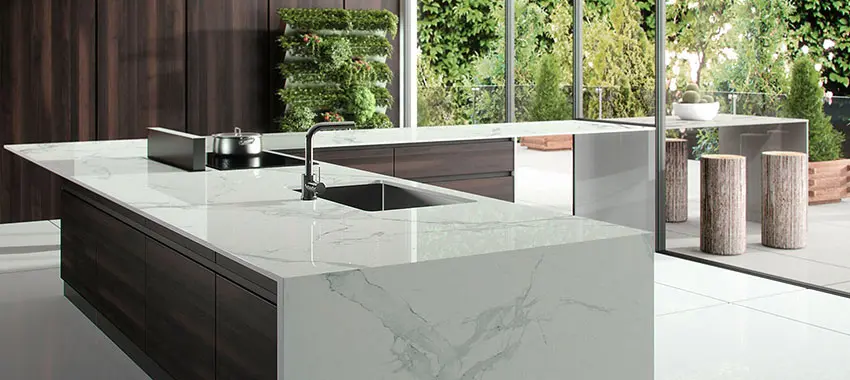Oct
How To Shop For Granite Countertops
Granite always delivers: It brings exclusivity, adds a touch of elegance, and improves the value of your home. To get the most from it, you have to buy the right one. Not sure how to go about it? Here are tips on how to shop for granite countertops:
Know what you want
You can’t buy any slab you come across—you need to know what you want and what will look the best for your home. Remember, granite comes in a wide array of colors and patterns. It also comes in plenty of edges, with the most common edges being: square, rough, bullnose, and rounded.
You also need to know the size of the countertop you need. This will require you to take a tape measure and measure the number of square feet of surface area you need. As you take the measurements, remember to include edge allowances, overhangs, backsplashes, seam allowances, and other things.
If you aren’t sure about the right countertop that will look the best for your home, get a professional’s input. The technician will even help you choose the right shape of slab, the right size, the appropriate slab thickness, and many other things.
Once you know what you want, start visiting different countertop and home improvement stores asking for quotes. Most companies will give you a free quote, and all you need is to compare the quotes and settle on the most sensible.
While the cheapest quote might be attractive, be cautious about it as the contractors might be selling substandard products.
Simultaneously, avoid extremely priced countertops as the company might be trying to rip you off.
Don’t buy the slabs countertops.
While online shopping is convenient, you shouldn’t buy the countertop slabs online. This is because a slab might be looking good in the store photos, but have a completely different look in your kitchen or bathroom, often due to lighting.
When looking to buy granite, the best way to go about it is by visiting the local showroom and physically inspecting each granite slab. Even after inspecting the slab at the store, don’t make the final commitment to buy the slab.
Take a sample of the slab to your home and see how it looks on your surfaces. If you like the look, go ahead and make the purchase.
Pay attention to the seams.
Seams make it easy to join different countertop slabs, but they can also mess with the counters’ look. If you have to use more than one slab, you have to deal with seams. The seams’ quality will vary depending on the length and width of the cabinets, the actual physical size of the slab, and access to the property.
To ensure your property doesn’t have ugly seams, work with experienced contractors who will help you minimize the number of seams in your countertops. They do this by ensuring they work with whole slabs as much as possible.
Before installing the countertops, enquire from the contractors where the seams will be located and how visible they will. This will ensure everyone is on the same page, and there are no surprises once you have installed the countertops.
Invest in a good thickness
Thin countertop slabs are not only cheap-looking, but they also don’t hold a lot of weight. When you are at the store, always go for a thick slab. Thankfully, you can tell how thick a slab is by looking at it.
Other than thickness, also touch the slab. If it feels weak or has an abnormal texture, stay away from it.
Work with a professional
Buying the right countertops is one thing and an entire ball game to properly install the countertops. Unless you are a dab hand at DIY projects, you should let granite installers Rockville handle the installation.
As you are hiring, ensure the contractor knows geometry. This knowledge will come in handy at ensuring you have as few seams as possible. To find such a professional, take your time and ask them as many questions as possible before hiring.
After installing the countertops, remember to take good care of them. As a rule of thumb, avoid placing hot items or weighty items directly on the surfaces. You also should avoid cleaning the surfaces with vinegar and other tough products that can etch the surfaces.


